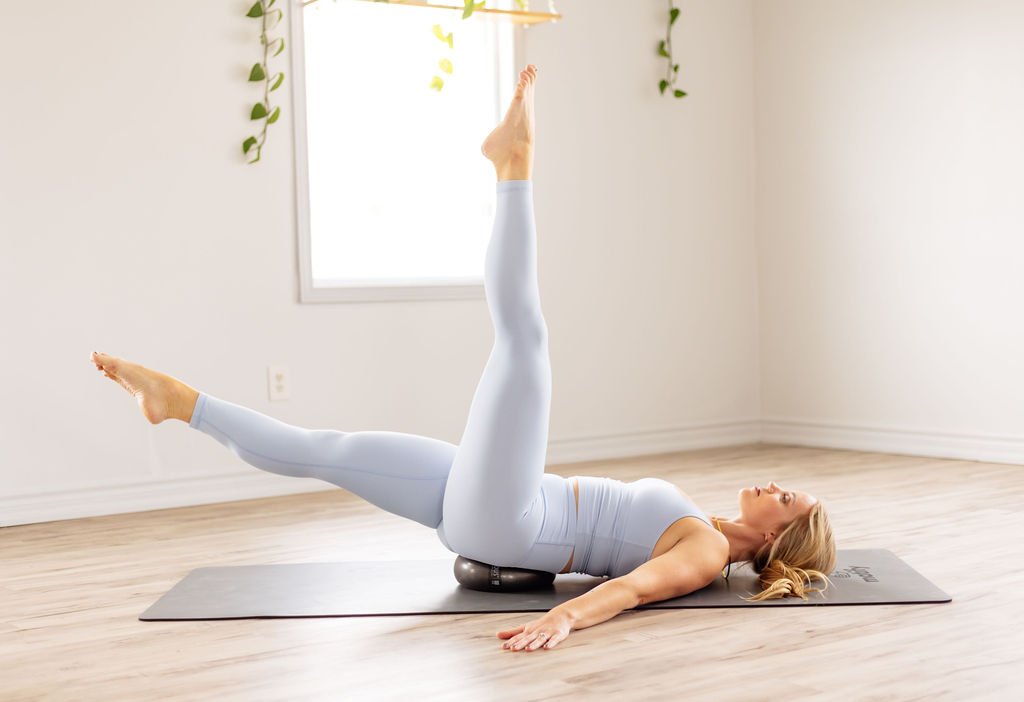What is Clinical Pilates and Is It For Me?
Clinical Pilates is an adaptation of traditional Pilates.
It is taught or programmed by a physiotherapist who is also a certified Pilates teacher and can be the perfect tool to strengthen core muscles and prevent or rehabilitate injuries.
One of the major focuses of this type of rehabilitative therapy is the development of strength in the core muscles - the deep abdominal and pelvic floor muscles.
Clinical Pilates also focuses on movement biomechanics, breathing patterns and on postural education to prevent future injury.
Many of the basic principles of Pilates align with what research suggests to be an integral part of improving various health conditions including chronic low back pain, osteoarthritis, neurological conditions, sports injuries, and more. A physiotherapist closely assesses a patient’s mechanics and scales exercises to better prevent injuries.
What are the Benefits of Pilates?
Correction of poor mechanics that underlie injuries
A better mind-muscle connection with deep core and pelvic floor muscles
Improved control over breathing
Resiliency with repetitive movement
Improved posture and flexibility
Improved core stabilization
Reduced likelihood of injury
An evenly balanced body
Increased body awareness
Who is Pilates For?
Patients with musculoskeletal pain or injury
Chronic pain patients
Post-surgical muscle strengthening
Prenatal and postpartum women
Patients with postural issues (looking at you, desk workers!)
“Physical fitness is the first requisite of happiness.”
There are several key principles that underlie the practice of Pilates, which help guide its exercises and philosophy. These principles include:
Concentration: Pilates requires intense mental focus. Practitioners are encouraged to concentrate on the specific movements they are performing, paying close attention to their form, breathing, and alignment.
Control: Pilates exercises emphasize control over the body's movements. Rather than rushing through exercises, individuals are encouraged to move with precision and awareness, ensuring that each movement is deliberate and controlled.
Centering: The "powerhouse," or core muscles, are central to Pilates. Practitioners are taught to initiate movements from the core, which includes the muscles of the abdomen, lower back, and pelvic floor. Strengthening these muscles is a fundamental aspect of Pilates.
Precision: Precision is key in Pilates. Movements should be executed with exactness and attention to detail. This focus on precision helps to develop better body awareness and alignment.
Breath: Proper breathing is an essential component of Pilates. Deep, controlled breaths are coordinated with each movement, helping to oxygenate the body, reduce tension, and enhance concentration.
FLOW (hence our namesake!): Pilates exercises are designed to flow smoothly from one to the next, creating a continuous, rhythmical sequence. This fluidity promotes graceful movement and reduces the risk of injury.
Posture: Pilates places a strong emphasis on improving posture. Practitioners are encouraged to maintain proper alignment during exercises and throughout their daily lives.
Flexibility: Pilates helps improve flexibility by promoting elongation of the muscles. This is achieved through a combination of stretching and strengthening exercises.
Stamina: Pilates is not only about short bursts of intense activity but also about building stamina and endurance. Consistent practice can lead to increased physical stamina over time.
Relaxation: Despite the emphasis on control and precision, Pilates also incorporates relaxation techniques. It's important for practitioners to release tension in their bodies and minds to achieve a sense of balance and well-being.
Small Group Mat Pilates Classes
Clinical Mat Pilates classes are an active rehabilitation class for people to experience Pilates within the scope of physiotherapy. We offer patients the opportunity to complete therapeutic exercise in a fun group setting!
With a small class size, you’ll receive individual attention and exercises targeted to your unique health needs. These sessions are offered quarterly, for 6-8 weeks in length and include both beginner and advanced Clinical Pilates options and are eligible to be covered under extended health benefits.
An initial assessment must be done with the physiotherapist who is also a certified Pilates teacher (Danielle Ufniak MScPT), prior to signing up for these sessions.
First, Danielle will conduct a Clinical Pilates Initial Assessment to determine if Clinical Pilates is appropriate for you, identify problem areas or areas of concern, rule out red flags and develop an individualized Pilates program aimed at addressing the issues identified during your Assessment.
1:1 Clinical Pilates
We offer 1:1 offerings at Flow Physio + Wellness through our Clinical Pilates program where we use the Reformer machine, Stability Chair and Mat Pilates to help you reach your goals.
Our 1:1 Clinical Pilates offerings are overseen and curated by Danielle Ufniak MScPT and executed by Jin Kwon PTA, Pilates Instructor and rehab specialist and Ashley Endicott Registered Kinesiologist, PTA, Pilates Instructor. Danielle, Ashley and Jin work closely to ensure your rehab goals are being met and changes are made based on each session.
How Do I Get Started with Clinical Pilates at Flow Physio + Wellness?
Book a Clinical Pilates Initial Assessment with Danielle (a 60-minute assessment to review past medical history, sites of pain/issue, functional movement screen, rule out red flags, discuss physiotherapy goals and begin introducing you to Pilates exercises and proper form)
Attend your Clinical Pilates Initial Assessment with Danielle!
Danielle will add your Assessment notes and physiotherapy goals to your patient chart so our PTAs can review them and we can curate a Pilates program geared towards your goals!
Book classes or 1:1 sessions
We are offering 30 minute and 45 minute sessions as per our physiotherapy fee schedule.
5. After 6-8 weeks of consistent Clinical Pilates, you must book a Clinical Pilates Assessment again with Danielle to discuss progress, changes, concerns or new goals to add to your physio treatment plan!
6. If any new injuries should arise, please reach out to Danielle immediately before continuing any treatment sessions at danielle@flow-wellness.ca

